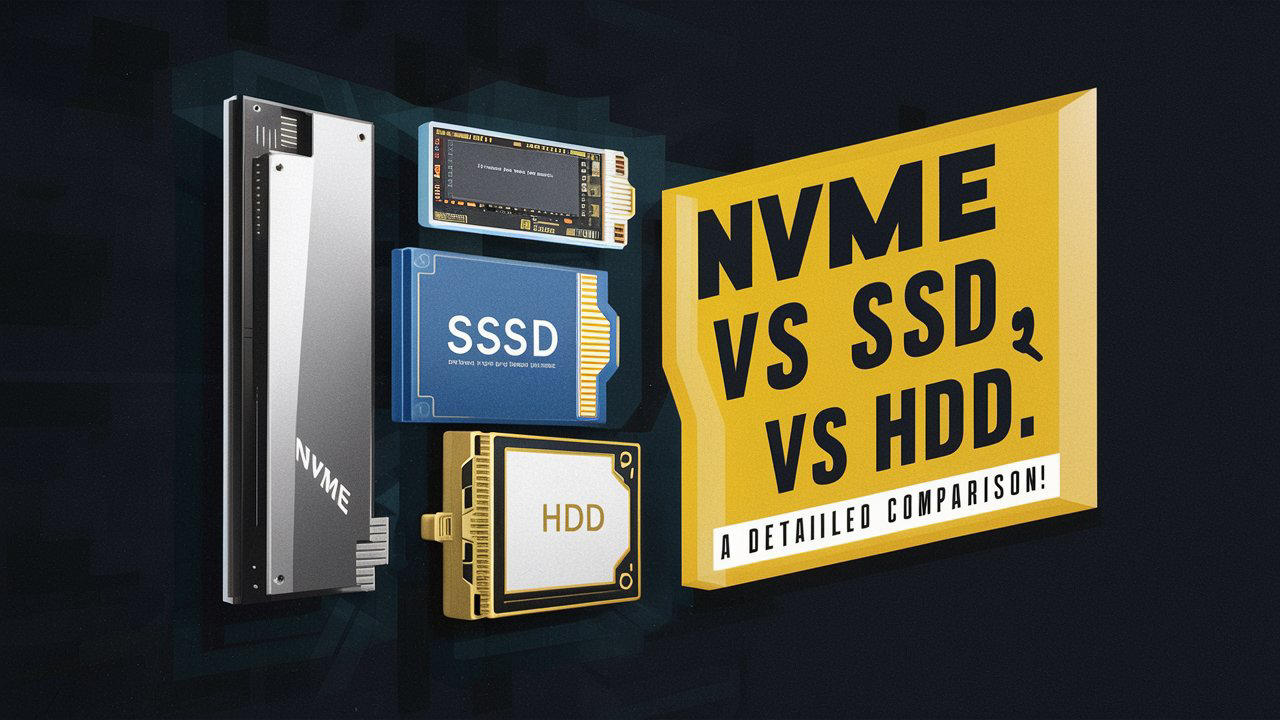NVMe vs SSD vs HDD: A Detailed Comparison
### NVMe vs SSD vs HDD: A Detailed Comparison
- **HDD (Hard Disk Drive)**
- Describe HDD as a traditional storage device with spinning platters and magnetic storage.
- Highlight its affordability and suitability for large data storage needs like backups.
- **SSD (Solid State Drive)**
- Explain SSD's solid-state architecture, faster performance, and durability due to no moving parts.
- Mention its higher cost compared to HDD but superior speed and efficiency.
- **NVMe (Non-Volatile Memory Express)**
- Define NVMe as a cutting-edge storage protocol designed for high-speed data access.
- Emphasize NVMe's exceptional speed, low latency, and suitability for demanding applications like video editing and database systems.
### Performance and Speed
- **HDD vs SSD vs NVMe**
- Compare the read and write speeds of each storage type.
- Highlight NVMe's significant performance advantage over SSDs and HDDs due to its advanced architecture.
### Price and Cost-Effectiveness
- **Cost Analysis**
- Discuss the price variations between HDD, SSD, and NVMe.
- Explain how the choice between these storage options should align with specific performance needs and budget constraints.
### Use Cases and Recommendations
- **Best Use Cases**
- Provide scenarios where each storage type shines, such as HDD for cost-effective storage, SSD for balanced performance, and NVMe for high-speed applications.
- Offer recommendations based on specific user requirements, like recommending NVMe for speed-critical tasks.
### Conclusion
Summarize the key points discussed in the blog post, emphasizing the importance of selecting the right storage type based on performance needs, budget considerations, and specific use cases.
By structuring your blog post in this manner, you can provide readers with a detailed and informative comparison of NVMe, SSD, and HDD storage technologies, helping them make informed decisions when choosing the most suitable storage solution for their needs.









0 comments:
Post a Comment